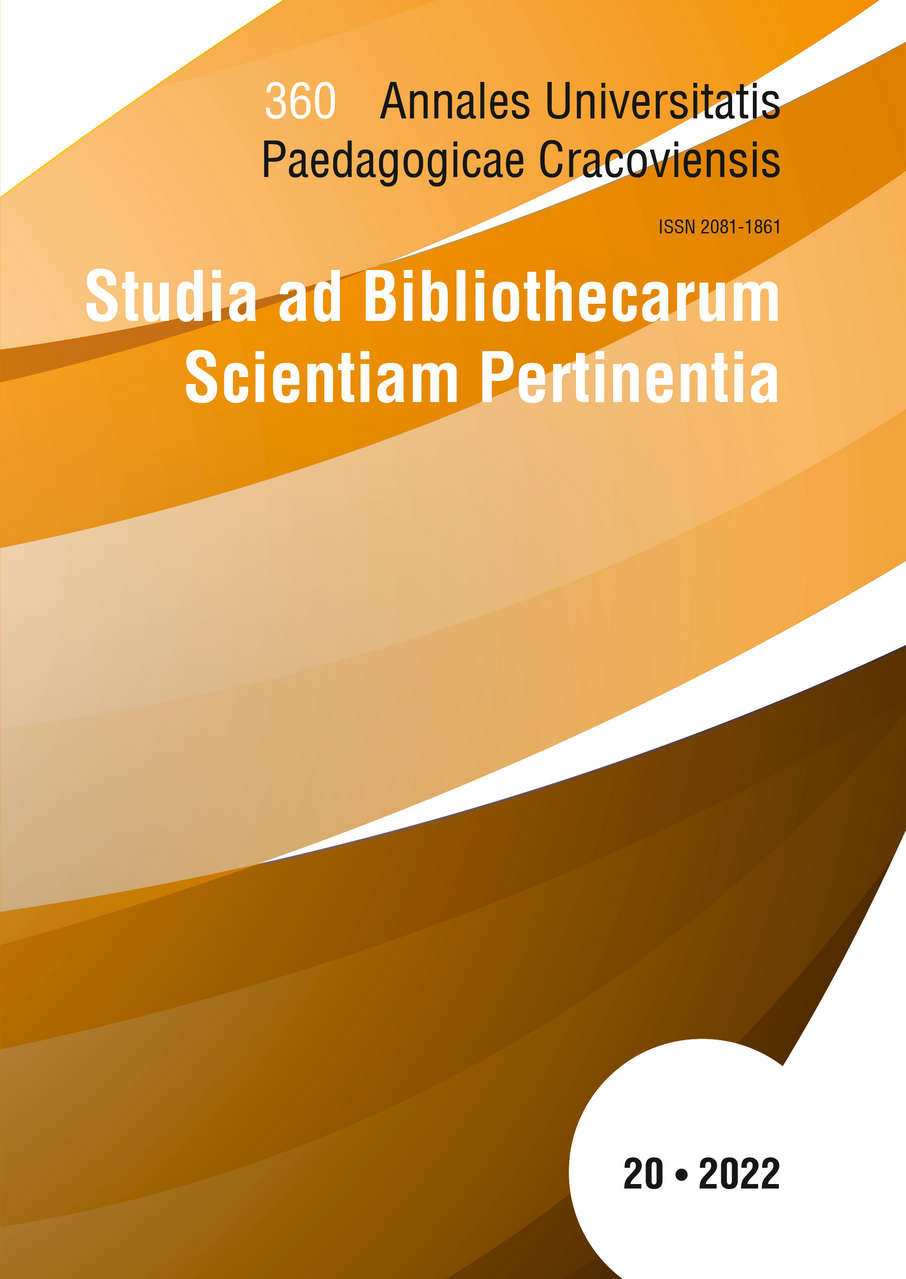“Authentic Interpretation”. (In)compliance with copyright law and international conventions against foreign publishers and creators during Stalinism in light of materials the Central Office of Publishing, Graphic Industry and Bookselling
DOI:
https://doi.org/10.24917/20811861.20.16Keywords:
copyright, international conventions, Stalinism, Polish Peoples’ RepublicAbstract
In 1952, the Communists changed the copyright law in Poland that limited copyright protection and linked it to censorship. From the very beginning, however, they deliberately violated copyright laws and international conventions, including the Berne Convention which Poland had been a member of since 1920. The new law strengthened government control over publishing policies and over the transmission of intellectual content that ultimately led to restrictions on the freedom of expression. In particular, the law introduced strict rationing of authors’ earnings, which ceased to be market-driven and depended on administrative decisions. In the case of translations, noncompliance with international regulations led to the withholding of approvals for Polish translations and prevented Polish literature from entering foreign markets, especially Western ones. Books were published without translation approvals, and royalties were charged in violation of international rules. Additionally, payments were withheld especially to Western countries, and the provisions of publishing contracts were not respected. Foreign publishing agencies were abolished and trade contacts were taken over by a state agency. These practices resulted in a significant deterioration of contacts with foreign publishers, including those from the countries in the so-called Eastern Bloc. The result was a narrow readership of foreign literature (especially Western literature), a reduction in the quality of the translations of both Polish and foreign authors, and the absence of translated Polish literature.
References
„Ruch Wydawniczy w Liczbach” 2022, t. 73: 2021 Książki.
Bates J.M., Cenzura w epoce stalinowskiej, „Teksty Drugie” 2000, nr 1–2, s. 95–120.
Błeszyński J., Recenzja rozprawy doktorskiej mgr Marcina Jana Stępnia pt. Autorskie prawa majątkowe w prawie polskim i rosyjskim. Analiza prawno-porównawcza napisanej na Wydziale Prawa i Administracji Uniwersytetu Szczecińskiego pod kier. nauk. dr hab. prof. USz Doroty Sokołowskiej, Warszawa 1 X 2018 r., maszynopis, [on-line] https://wpia.usz.edu.pl/wp-content/uploads/recenzja-prof.-dr-hab.-Jan-B%C5%82eszy%C5%84ski.pdf – 18.08.2021.
Bromberg A., Książki i wydawcy. Ruch wydawniczy w Polsce Ludowej w latach 1944–1957, wyd. 1, Warszawa 1958.
Chamera-Nowak A., Książka a stalinizm, Warszawa 2019.
Choriew W., Ingerencja ZSRR w życie kulturalne Polski (1944–1953), „Napis. Pismo poświęcone literaturze okolicznościowej i użytkowej” 2000, t. 6, s. 257–265.
Czajkowska-Dąbrowska M., Sytuacja prawna autorów obcych w Polsce, Lublin 2019.
Dobrołęcki P., Sto lat wydawnictwa : od czasopisma „Bellona” do spółki Z o.o., „Biblioteka Analiz 2018, nr. 7, s. 12–16.
Jarosz D., Communist Authorities, the Society, and the Book in Poland 1945–1989: Mutual Relationships, [w:] Books versus Power. Stydies in Relations between Politics and Culture in Polish History, eds. J. Soszyński, A. Chamera-Nowak, Frankfurt am Main, Peter Lang GmbH, 2015, s. 240–257.
Jarosz D., Dzieje książki w Polsce 1944–1989. Wybór źródeł, Warszawa 2010.
Jezioro J., Wybrane zagadnienia dotyczące relacji między prywatnoprawnym i publicznoprawnym uregulowaniem prawa autorskiego, [w:] Księga dla naszych kolegów, red. J. Mazurkiewicz, Wrocław 2012, s. 183–198.
Kaliński J., Landau Z., Gospodarka Polski w XX wieku. Warszawa 2003.
Kamińska-Chełminiak K., Cenzura w Polsce 1944–1960. Organizacja, kadry, metody pracy, Warszawa 2019; Główny Urząd Kontroli Prasy 1945–1949, red. D. Nałęcz, Warszawa 1994.
Kondek S.A., Literatura popularna w ofercie czytelniczej polskiego socrealizmu, [w:] Socrealizm. Fabuły – komunikaty – ikony, red. K. Stępnik, M. Piechota, Lublin 2006, s. 23–32.
Kondek S.A., Papierowa rewolucja, Warszawa 1999.
Kondek S.A., Władza i wydawcy. Polityczne uwarunkowania produkcji książek w Polsce w latach 1944–1949, Warszawa 1993.
Kremer A., Przekłady, kanony, przemieszczenia, „Konteksty Kultury” 2020, z. 1, s. 5–14.
Królak J., Paratekst w służbie propagandy. Wprowadzenia w przekładach literatury pięknej na język polski i czeski w latach 50. XX wieku, „Przekłady Literatur Słowiańskich” 2017, t. 8, cz. 1, s. 159–177.
Małczak L., Tłumacz jako instytucja: przypadek PRL i drugiej Jugosławii, „Przekłady Literatur Słowiańskich” 2015, t. 6, cz. 1, s. 281–289.
Mielczarek T., Uwarunkowania prawne funkcjonowania cenzury w PRL, „Rocznik Prasoznawczy” 2010, t. 4, s. 29–49.
Mrowczyk E., Obca literatura kryminalna bez tłumacza, „Między Oryginałem a Przekładem” 1997, R. 3, s. 79–86.
Ustawa o prawie autorskim z dnia 29 marca 1926 r. Łódź: Czytelnik, 1945.
Downloads
Published
How to Cite
Issue
Section
License
Copyright (c) 2022 AUPC Studia ad Bibliothecarum Scientiam Pertinentia

This work is licensed under a Creative Commons Attribution 4.0 International License.

